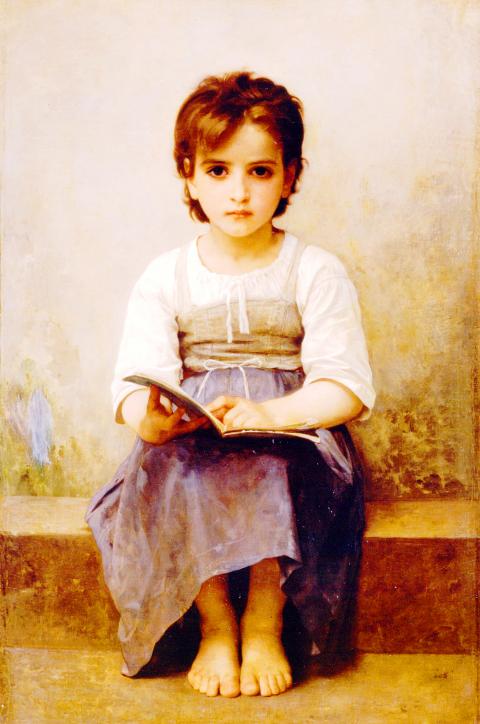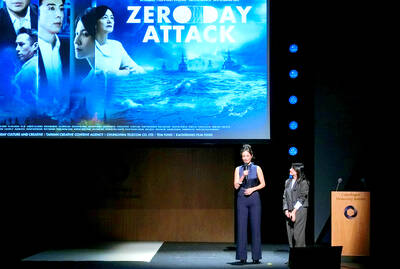Chinese Practice
刮目相看;另眼相看
(gua1 mu4 xiang1 kan4; ling4 yan3 xiang1 kan4)

Photo: Wikimedia Commons
照片:維基共享資源
to rub one’s eyes and look again; to view someone in a new light
呂蒙是三國時代的將軍,效力於吳國霸主孫權。呂蒙年少時就以勇敢出名,但卻沒讀過什麼書。他從軍後忙於軍務,便推說沒有時間讀書;但孫權勸告呂蒙說,趁著他年紀還輕,應該要多讀讀史書和兵書以充實學識。呂蒙把孫權的話謹記在心,自此好學不倦,最後變得比其他儒生更有學問。另一位將領魯肅也曾輕視呂蒙,覺得他沒知識;但有一天,兩人在營區討論事情,魯肅在言談中發現呂蒙已有非常大的進步。據《三國志》(作於西元三世紀)注釋中所引用的〈江表傳〉記載,魯肅拍拍呂蒙的背說道:「吾謂大弟但有武略耳,至於今者,學識英博,非復吳下阿蒙」(我一直以為你只是會打仗而已,但不知道你是那麼有學問。你已經不再是當年那個學識淺陋的呂蒙了)。呂蒙便回答說:「士別三日,即更刮目相待」(士三天不見,就應該讓人刮目相待)。成語「刮目相看」便是由此演變而來,字面意思是「揉揉眼睛再看」,意指用新的眼光來看待人、對其能力重新評價與認識。
這句話用英文來說,可以用「see/view someone in a new/different light」(以不同的方式看待某人)來表達。
《初刻拍案驚奇》是明末凌濛初(西元一五八○~一六四四年)所著之短篇小說集。其中有篇故事說,陳大郎請一個高大、長滿鬍鬚的人吃了豐盛的一頓飯。後來有一天,陳大郎的妻子和小舅子被一幫盜匪劫走,而這幫盜匪的首領,正是那位鬍鬚大漢。後來首領發現擄來的人原來是陳大郎之妻及妻舅──陳妻回憶道──首領「查問來歷,我等一一實對,於是他便把我們另眼相看,我們也不知其故」(他問我們的身份、從哪裡來,我們全都老實回答了。從那時起,他對待我們的方式就不同了,雖然我們並不知為何會這樣)。首領不但沒傷害他們,還把他們視為上賓款待。後來陳妻和陳大郎團圓後,才明白原來首領是在報答陳大郎當年那一頓飯的恩情。成語「另眼相看」(或作「另眼相待」)便是由此而來,意思是「以新的眼光看待某人」。
「刮目相看」和「另眼相看」都意味重新審視某人,但兩者用法不同。首先,「刮目相看」意味所描述的人已有所改變,或進步到令人驚訝、不容忽視的程度;而「另眼相看」則意味那人原本就有令人印象深刻或獨特之處。其次,跟「see/view someone in a new/different light」一樣,「另眼相看」的用法可以是正面的,也可以是負面的,以表達重視或歧視。
(台北時報林俐凱譯)
(Her professional manner, despite her young age, is really quite striking.)
(He’s the chairman’s son, but don’t give him any special treatment, he must be given the full training, with nothing held back.)
(Equality should be given primacy even before legal considerations: why should somebody be treated differently simply because of their race?)
英文練習
see/view someone in a new/different light
Lu Meng was a general of the Three Kingdoms Period, serving under the warlord Sun Quan of the state of Wu. He made a name for himself for bravery early on, but he was never known for his scholarly achievements. Lu himself said that he had little time between his military exploits to devote to study, but Sun counseled him to cultivate a foundation in the ancient historical texts and military classics while he was still a young man. Lu took this advice to heart, and eventually became better-read than some Confucian scholars. Lu Su was another general, and one of the people who had formerly looked down upon Lu Meng for his lack of erudition. One day, the two met at an encampment, and over the course of their discussion Lu Su realized just how much the other man had progressed. According to the jiangbiao zhuan (Biography of Jiang Biao) as cited in the third century AD work sanguo zhi (Records of the Three Kingdoms), he slapped Lu Meng on the back, saying, “I have always thought you were little more than a fighter, and had no idea how learned you are. You are no longer the illiterate Lu Meng I once knew.” To this, Lu Meng replied 士別三日,即更刮目相待 (When scholars part ways for three days, they will see each other anew [when they meet again later]). This gives us the idiom 刮目相看, literally “to rub one’s eyes and look again,” meaning to look at somebody with a revised estimation of their abilities.
In English, you can say “see/view someone in a new/different light.”
In the late Ming Dynasty collection of short stories Slapping the Table in Amazement Part 1 by Ling Mengchu (1580–1644), we read a story in which one Chen Dalang provides a hearty meal for a towering, bearded man — who later turns out to be the leader of a group of bandits — and of how Chen’s wife and her brother are later captured by bandits led by that same man. One day, the bandit chief discovers the identity of Chen’s wife. She would later relate how the bandit leader 查問來歷,我等一一實對,便把我們另眼相看,我們也不知其故 (asked us where we came from, and I answered each of his questions. From that point, he viewed us in a different light, although we had no idea why this should be). Not only did he not harm them, he treated them as honored guests. Afterward, when Chen and his wife were reunited, they worked out that it must have been because the husband had shown the bandit kindness in the past. From this story we get the idiom 另眼相看 (also written as 另眼相待) meaning “to view someone in a new light.”
Both 刮目相看 and 另眼相看 mean to look at somebody anew. There are differences in their usage, however. Firstly, the former means that the person in question has changed, or progressed, to a remarkable degree, such that it is difficult to ignore; while the latter suggests that there is something inherently impressive or unique about the person. Secondly, like the English phrase, 另眼相看 can be used in either a positive or negative way.
(Paul Cooper, Taipei Times)
(我不知道原來他那麼懂音樂,我現在對他可是刮目相看了。)
(我跟你說巴布他以前做過的壞事,保證你聽了以後會對他另眼相看。)

A: Wow, Les Miserables Staged Concert Spectacular is visiting Taiwan for the first time. B: Isn’t Les Miserables often praised as one of the world’s four greatest musicals? A: Yup. Its concert is touring Taipei from tonight to July 6, and Kaohsiung between July 10 and 27. B: The English version of the French musical, based on writer Victor Hugo’s masterpiece, has been a huge success throughout the four decades since its debut in 1985. A: The musical has never toured Taiwan, but going to the concert sounds like fun, too. A: 哇,音樂劇《悲慘世界》紀念版音樂會首度來台巡演! B: 《悲慘世界》……它不是常被譽為全球四大名劇之一嗎? A: 對啊音樂會將從今晚到7月6日在台北演出,從7月10日到27日在高雄演出。 B: 這部法文音樂劇的英文版,改編自維克多雨果的同名小說,自1985年首演以來,在過去40年造成轟動。 A:

Some 400 kilometers above the Earth’s surface, the “International Space Station” (ISS) operates as both a home and office for astronauts living and working in space. Astronauts typically stay aboard the station for up to six months and engage in groundbreaking research projects in various fields, such as biology, physics and astronomy. These projects help scientists understand life in space and contribute to advancements that benefit people on Earth. The ISS has experienced significant growth since construction began in 1998. The station’s design and assembly represent an extraordinary international collaboration among Canada, the European Union, Japan, Russia and the United States.

A: While hit musical Les Miserables’ concert tour kicks off, South Korean drama Squid Game 3 will be back at the end of this month. B: New Taiwanese dramas The World Between Us 2 and Zero Day Attack have also gained attention. A: I heard that Zero Day Attack is a story about the Chinese Communist Party’s People’s Liberation Army trying to attack Taiwan by force. B: The drama’s subject is so sensitive that it has sparked a lot of controversy in society. A: I just hope that such a horrible story will never happen in

Continued from yesterday(延續自昨日) https://www.taipeitimes.com/News/lang Living on the ISS is challenging due to the absence of gravity. Astronauts must strap themselves into sleeping bags to prevent floating away while they sleep. They also spend about two hours exercising daily using specialized equipment. Despite this, microgravity can cause muscle loss, bone density reduction and cardiovascular changes. As a result, astronauts require extensive rehabilitation upon their return to Earth. In spite of these difficulties, astronauts often describe their experience on the ISS as life-changing. One of the most awe-inspiring aspects of living aboard the space station is the unparalleled view of Earth. Traveling at